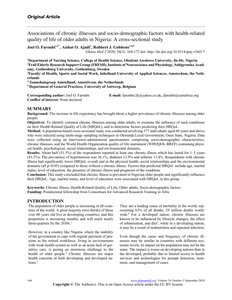Objectives: The aim of this scoping review was threefold: 1. to identify existing definitions of oral frailty and similar terms in gerodontology literature; 2. to assess the oral frailty definitions and analyze whether these are well formulated on a conceptual level; and 3. in the absence of existing definitions meeting the criteria for good conceptual definitions, a new conceptual definition of oral frailty will be presented. Methods: A search was performed in electronic databases and internet search engines. Studies explaining or defining oral frailty or similar terms were of interest. A software-aided procedure was performed to screen titles and abstracts and identify definitions of oral frailty and similar terms. We used a guide to assess the quality of the oral frailty definitions on methodological, linguistic, and content-related criteria. Results: Of the 1,528 screened articles, 47 full-texts were reviewed. Thirteen of these contained seven definitions of oral frailty and ten definitions of similar terms. We found that all definitions of oral frailty contain the same or equivalent characteristics used to define the concepts of ’oral health’, ’deterioration of oral function’, and ’oral hypofunction’. Between the seven definitions, oral frailty is described with a different number and combination of characteristics, resulting in a lack of conceptual consistency. None of the definitions of oral frailty met all criteria. Conclusion: According to our analysis, the current definitions of oral frailty cannot be considered ’good’ conceptual definitions. Therefore, we proposed a new conceptual definition: Oral frailty is the age-related functional decline of orofacial structures.
DOCUMENT

Background: The increase in life expectancy has brought about a higher prevalence of chronic illnesses among older people. Objectives: To identify common chronic illnesses among older adults, to examine the influence of such conditions on their Health-Related Quality of Life (HRQoL), and to determine factors predicting their HRQoL. Method: A population-based cross-sectional study was conducted involving 377 individuals aged 60 years and above who were selected using multi-stage sampling techniques in Olorunda Local Government, Osun State, Nigeria. Data were collected using an interviewer-administered questionnaire comprising socio-demographic characteristics, chronic illnesses, and the World Health Organization quality of life instrument (WHOQOL-BREF) containing physical health, psychological, social relationships, and environmental domains. Results: About half (51.5%) of the respondents reported at least one chronic illness which has lasted for 1–5 years (43.3%). The prevalence of hypertension was 36.1%, diabetes 13.9% and arthritis 13.4%. Respondents with chronic illness had significantly lower HRQoL overall and in the physical health, social relationships and the environmental domains (all p<0.05) compared to those without a chronic illness. Factors that predicted HRQoL include age, marital status, level of education, the presence of chronic illness and prognosis of the condition. Conclusion: This study concluded that chronic illness is prevalent in Nigerian older people and significantly influence their HRQoL. Age, marital status, and level of education were associated with HRQoL in this group.
DOCUMENT

At the beginning of the twenty first century obesity entered Dutch maternity care as a ‘new illness’ challenging maternity care professionals in providing optimal care for women with higher BMI’s. International research revealed that obese women had more perinatal problems than normal weight women. However, the effect of higher BMIs on perinatal outcomes had never been studied in women eligible for midwife-led primary care at the outset of their pregnancy. In the context of the Dutch maternity care system, it was not clear if obesity should be treated as a high-risk situation always requiring obstetrician-led care or as a condition that may lead to problems that could be detected in a timely manner in midwife-led care using the usual risk assessment tools. With the increased attention on obesity in maternity care there was also increased interest in GWG. Regarding GWG in the Netherlands, the effect of insufficient or excessive GWG on perinatal outcomes had never been studied and there were no validated guidelines for GWG. A midwife’s care for the individual woman in the context of the Dutch maternity care system - characterised by ‘midwife-led care if possible, obstetrician-led care if needed’ - is hampered by the lack of national multidisciplinary consensus regarding obesity and weight gain. Obesity has not yet been included in the OIL and local protocols contain varying recommendations. To enable sound clinical decisions and to offer optimal individual care for pregnant women in the Netherlands more insights in weight and weight gain in relation to perinatal outcomes are required. With this thesis the author intends to contribute to the body of knowledge on weight and weight gain to enhance optimal midwife-led primary care for the individual woman and to guide midwives’ clinical decision-making.
DOCUMENT
